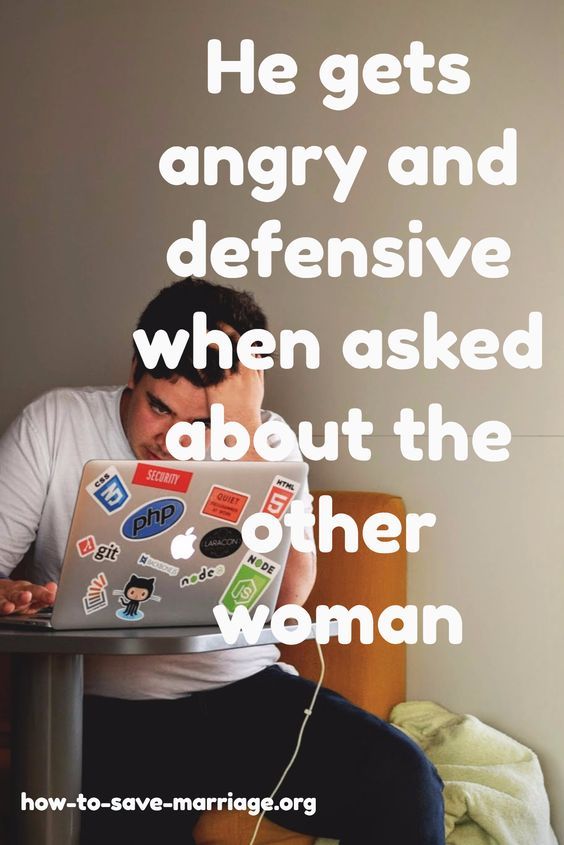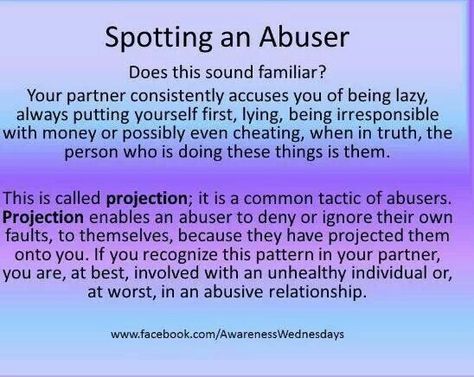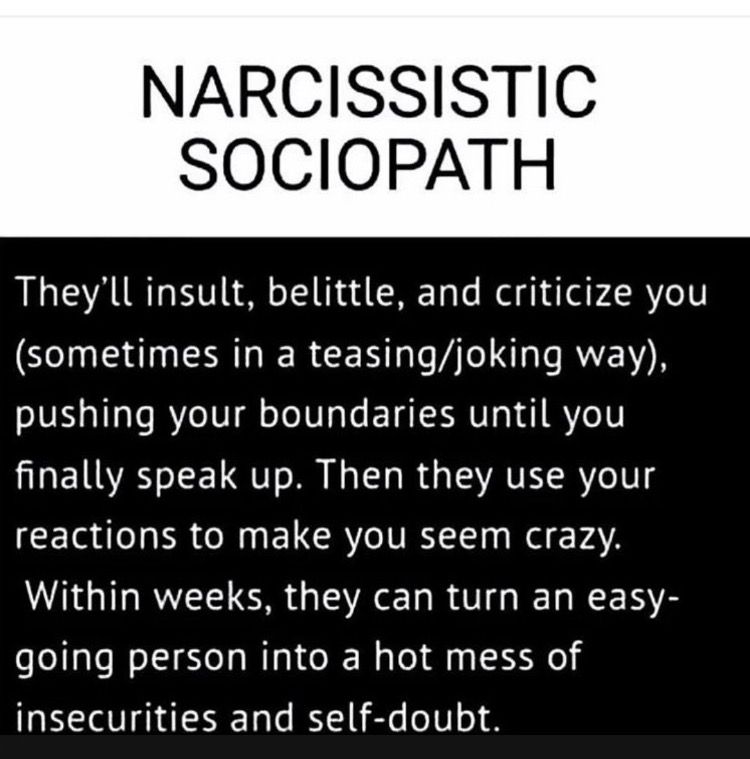Defending your spouse
How to Appropriately Defend Your Man Without Slapping Anyone
How to Appropriately Defend Your Man Without Slapping Anyone March 31, 2022 Sheila Qualls
I’m not a fan of Will Smith, Chris Rock or the Oscars, but I’ve got to admit I was taken in by the discussion about “the slap.” I mean, who wasn’t? Smith was defending his wife.
A radio commentator called it “the slap heard round the world.” It certainly dominated the news cycle.
If you didn’t see it, Will Smith slapped Chris Rock on stage at the Oscars. Smith smacked Rock in retaliation for a joke Rock made about his wife, Jada Pinkett Smith. Jada Pinkett Smith suffers from alopecia which attacks the hair follicles and Rock made a joke about her appearance.
_____________________________________________________________________________________
_____________________________________________________________________________________
This post is not about who was right or who was wrong. The opinions are mixed. While defending your spouse is admirable, I wouldn’t recommend smacking someone who badmouths your husband.
You can appropriately defend your husband without slapping anyone. It makes for great drama on TV, but if you slap someone, you might not like their response. They might slap you back.
And, again, you can defend your husband without smacking someone. When people talk about stuff you should do in marriage, defending your husband isn’t usually on the list.
It seems obvious, but it’s much more common for wives to gossip about their husbands than to defend them. I’ve been guilty of it myself.
It seems to be an acceptable practice to bad-mouth your husband to your friends or family.
Truth is, we shouldn’t gossip about our husbands, and we should know how to defend them if someone else does.
Defending your husband when someone is badmouthing him is the ultimate sign of respect. Whether he witnesses it or not, you’re communicating to others that he is important to you.
Here are 3 ways you can defend your husband:
- 1. Refuse to badmouth your husband.
The more you complain about your man, the more negative you’ll feel about him. When he does something that bugs you, chances are you’ll become more irritated if you tell your friends about it. Focus on the negative, you’re going to feel more negative. When he’s not bugging you anymore, your friends and family won’t forgive or forget as quickly as you do. No matter how tempting it is when you’re angry, refrain from speaking ill of your husband to others.
2. Shut down people who speak poorly of your man.
Defending your husband is a sign of respect. If he witnesses it, he’ll feel like he’s important to you. If someone says something bad about your husband, let them know you’re not okay with it. It might be necessary to set boundaries with people who consistently disrespect your husband. This includes children, family members and friends. You may have to sever relationships with people who won’t respect your boundaries.
You may have to sever relationships with people who won’t respect your boundaries.
3. Build him up to others.
Get in the habit of talking positively about your husband. Let others know what you appreciate about him. Brag about the nice things he does for you or how great he is with your kids. When you speak kindly of him, others will, too. If you must talk about him, talk about how well he treats you and how lucky you are to have him. Speaking kindly of him also shifts your focus to what you love about him.
Protect your marriage by refusing to gossip about your husband and by defending him against others who do.
Need skills to build intimacy?
- Get on the waitlist for my next group coaching session–Change Your Mind; Change Your Marriage.
- Visit my website, like my Facebook page and join my private Facebook group.
- Check out my FREE resources and download How to Be A Wife No Man Will Ever Want to Leave.

- Apply for private coaching with Sheila.
Subscribe to updates from The Not So Excellent Wife here!
Also known as the Not So Excellent Wife, Sheila Qualls understands how tiring a tough marriage can be.
She went from the brink of divorce to having a thriving marriage by translating timeless truths into practical skills. She’s helped women just like you turn their men into the husbands they want.
After 36 years of marriage, she’s a coach and a speaker whose passion is to equip women to break relationship-stifling habits and do marriage God’s way. And you don’t have to be a doormat to do it.
She and her husband Kendall have five children. They live in Minnesota with their Black Lab, Largo.
In addition to coaching, Sheila is a member of the MOPS Speaker Network. Her work has been featured on the MOPS Blog, The Upper Room, Grown and Flown, Scary Mommy, Beliefnet, Candidly Christian, Crosswalk. com, The Mighty and on various other sites on the Internet.
com, The Mighty and on various other sites on the Internet.
When Your Partner Doesn’t Defend You, It Can Harm Your Relationship
There’s a quiet moment in Legally Blonde ’s otherwise explosive courtroom scene that’s usually overlooked. Elle Woods approaches the judge’s bench to replace Professor Callahan, who refuses to step aside in Brooke Windham’s case. Then Emmett — sweet, sweet Emmett — agrees to “supervise” Elle as the required licensed attorney (“I’ll supervise, your honor”). The group returns to their seats, and Elle goes on to prove Brooke’s innocence. It’s an overlooked moment because it seems obvious: Emmett would always stand up for Elle. You should stand up for your partner (or wanna-be partner), right? The scene marks Emmett as a beau worth having. So what happens when your partner doesn’t defend you?
Now, most relationships don’t form over the course of a murder trial, sure, but the premise holds: In order for a relationship to be healthy, couples need a foundation of mutual trust, respect, and support. If you have a partner who never stands up for you, it's difficult to feel truly supported.
If you have a partner who never stands up for you, it's difficult to feel truly supported.
"When your partner doesn’t stand up for you, there’s a chipping away at the foundation of trust in the relationship," says April Masini, a New York relationship expert. "Being in a relationship means you can count on each other, but if they don’t stand up for you, either in private or in public, there’s a dissolution of trust, [which] allows negativity and anger to creep into the relationship."
In any relationship, there will be moments when you disagree with your partner, or someone close to them, such as a friend or family member. But in the event an argument gets heated and disrespect is thrown around, it's important that your partner has your back, even if that means standing up to their friends and family.
Three relationship experts share tips for navigating the sticky situation.
Why It’s So Hard To Stand Up To Friends & Family
Being in a relationship means making your partner a top priority. And while your partner might be willing to confront a stranger who disrespects you, things get trickier when if the offender is a family member or friend. "From birth, we're on our family's 'team' [so] when a rift occurs between a romantic partner and the family, it can be damaging for all involved," says Amica Graber, a relationship expert for the background-checking site TruthFinder. "Don't expect your partner to automatically take your side. It can be hard for someone to stand up against their parents, especially if they've never set any boundaries with their family."
And while your partner might be willing to confront a stranger who disrespects you, things get trickier when if the offender is a family member or friend. "From birth, we're on our family's 'team' [so] when a rift occurs between a romantic partner and the family, it can be damaging for all involved," says Amica Graber, a relationship expert for the background-checking site TruthFinder. "Don't expect your partner to automatically take your side. It can be hard for someone to stand up against their parents, especially if they've never set any boundaries with their family."
They might feel disloyal by voicing support for you. But your partner should want to present a united front with you — their chosen life partner — regardless of whether they agree with you in the moment.
"It should be said that being romantically involved with someone doesn't always mean that you take their side," Graber says. "Although a partner should be honest with you about their reservations in private, they shouldn't express those doubts in public. "
"
Standing up for each other can be as simple as saying, I don't like the way you're speaking to my partner. We're going to remove ourselves from the situation to calm down. We will reach out when we're ready to talk again.
The Negative Effects Of Having A Partner Who Doesn't Stand Up For You
"Being unwilling to defend a significant other doesn't necessarily mean someone is being disrespectful or ignoring your feelings," Graber says. "They might be extremely averse to conflict. But if someone repeats the same behavior without being willing to work on it, it may be a sign that you're incompatible, especially if lack of loyalty is a deal-breaker [for you]."
No one wants to feel abandoned by their partner during a difficult situation, and creating trust comes from proving, time and again, that you'll defend and support each other, no matter the situation. "Creating trust is the whole point of offering emotional/physical/intellectual spiritual support," says Hanalei Vierra, a California marriage and family therapist. "If this kind of support is missing in a relationship, trust will be compromised and the person slighted will feel alone."
"If this kind of support is missing in a relationship, trust will be compromised and the person slighted will feel alone."
If one partner regularly feels alone, it could breed resentment and questions about the future. "If someone can't support you during an external conflict, they probably aren't going to support you in any other areas of your future, such as your career or having a family,” Graber adds. “You have to ask yourself if that's truly a relationship you want to be a part of."
How To Tell Your Partner You Need More Support
Communicate, communicate, communicate. Does your partner want you to leave the room with them if things get heated? Would you prefer your partner set more boundaries with their family? You can only accomplish these goals by telling your partner.
"Let your partner know, 'I can see why you feel that way,'" Vierra says. "Then add, 'I happen to have a different opinion, but that does not discount what you are feeling and the value your feelings have. '"
'"
“Being a team doesn't always [mean] fighting the other person's battles on their behalf,” Graber adds. “But it does involve offering support and listening to your partner's perspective on the situation." If you've communicated your position and don’t see any change in your partner’s behavior, that could be a sign. It's up to you to decide whether to stay or move on, ideally to find someone who is willing to be your teammate.
"A couple who demonstrates mutual support will be a longer-lasting and happier couple," Graber says. "Life will always throw challenges at you, and being able to manage the small ones will help prepare you for the big ones. Facing challenges together will be nearly impossible without offering mutual support. Having someone who is willing to fight for you, metaphorically speaking, increases feelings of love and security in a relationship."
Experts:
April Masini, relationship expert
Amica Graber, relationship expert for the background-checking site TruthFinder.
Hanalei Vierra, Ph.D., LMFT, marriage and family therapist
This article was originally published on
Code of Criminal Procedure of the Russian Federation Article 44. Civil Plaintiff \ ConsultantPlus
Code of Criminal Procedure of the Russian Federation Article 44. Civil Plaintiff
. The decision on recognition as a civil plaintiff is formalized by a court ruling or by a decision of a judge, investigator, interrogating officer. A civil plaintiff may also bring a civil action for property compensation for moral damage.
(as amended by the Federal Law of 05.06.2007 N 87-FZ)
(see the text in the previous edition)
in the court of first instance. When filing a civil claim, the civil plaintiff is exempted from paying the state fee.
(part two as amended by Federal Law No. 92-FZ of 04.07.2003)
(see the text in the previous edition)
3. A civil claim in defense of the interests of minors, persons recognized as incapable or partially capable in accordance with the procedure established by civil procedural legislation, persons who for other reasons cannot defend their rights and legitimate interests themselves, may be brought by their legal representatives or a prosecutor , and in defense of the interests of the Russian Federation, subjects of the Russian Federation, municipalities, state and municipal unitary enterprises - by the prosecutor.
A civil claim in defense of the interests of minors, persons recognized as incapable or partially capable in accordance with the procedure established by civil procedural legislation, persons who for other reasons cannot defend their rights and legitimate interests themselves, may be brought by their legal representatives or a prosecutor , and in defense of the interests of the Russian Federation, subjects of the Russian Federation, municipalities, state and municipal unitary enterprises - by the prosecutor.
(as amended by Federal Law No. 457-FZ of December 19, 2016)
(see the text in the previous edition)
2) present evidence;
3) to give explanations on the brought claim;
4) file motions and objections;
5) testify and give explanations in their native language or in the language they speak;
6) use the help of an interpreter free of charge;
7) refuse to testify against himself, his spouse (wife) and other close relatives, the circle of which is determined by paragraph 4 of Article 5 of this Code. If the civil plaintiff agrees to testify, he must be warned that his testimony can be used as evidence in a criminal case, including in the event of his subsequent refusal to testify;
If the civil plaintiff agrees to testify, he must be warned that his testimony can be used as evidence in a criminal case, including in the event of his subsequent refusal to testify;
8) have a representative;
9) get acquainted with the protocols of investigative actions carried out with his participation;
10) to participate, with the permission of the investigator or interrogating officer, in investigative actions carried out at his request or at the request of his representative;
11) abandon the civil claim brought by him. Prior to accepting the waiver of the civil claim, the inquirer, investigator, court shall explain to the civil plaintiff the consequences of the waiver of the civil claim provided for by part five of this article;
(as amended by Federal Law No. 87-FZ of 05.06.2007)
(see the text in the previous edition)
12) upon completion of the investigation, to familiarize themselves with the materials of the criminal case relating to the civil suit brought against them, and write out any information from the criminal case and in any volume;
13) to know about the decisions taken affecting his interests and to receive copies of the procedural decisions relating to the civil suit filed by him;
14) participate in the trial of a criminal case in the courts of the first, second, cassation and supervisory instances;
(as amended by Federal Laws No. 13-FZ of 09.01.2006, No. 433-FZ of 29.12.2010)
13-FZ of 09.01.2006, No. 433-FZ of 29.12.2010)
(see the text in the previous edition)
16) get acquainted with the protocol and audio recording of the court session and submit comments on them;
(clause 16 as amended by Federal Law No. 228-FZ of July 29, 2018)
(see the text in the previous edition)
body of inquiry, body of inquiry, investigator, prosecutor and court;
(as amended by Federal Law No. 440-FZ of December 30, 2015)
(see the text in the previous edition)
19) to know about the complaints and presentations brought in the criminal case and to file objections to them;
20) participate in the judicial review of complaints and submissions submitted in accordance with the procedure established by this Code.
5. A civil claim may be waived by a civil plaintiff at any time during the criminal proceedings, but before the court retires to the deliberation room to pass judgment. The refusal of a civil claim entails the termination of proceedings on it.
6. The civil plaintiff is not entitled to disclose the data of the preliminary investigation, if he was warned about it in advance in accordance with the procedure established by Article 161 of this Code. The civil plaintiff is liable for the disclosure of preliminary investigation data in accordance with Article 310 of the Criminal Code of the Russian Federation.
I am married but single. What to do? – Orthodox magazine “Foma”
Approximate reading time: 18 min.
-
100%
+
Embed code
Code copied
Letter to the editor:
My question is about mental loneliness. We've been together for 10 years. It's hard for me to live without emotional contact. It is not in our marriage. Both of us are responsible, we try to do everything. But I can no longer stand on one responsibility, I also need a warm relationship, it offends me terribly when they don’t talk to me for weeks, when they don’t ask how I’m doing, how my mood is, what worries me. I try to do all this, but it's only one-sided.
I try to do all this, but it's only one-sided.
It seems to the husband that it is enough that he tries to help in everything, he gets tired both at work and helping with household chores. I understand this, logically yes, I agree, but marriage without a spiritual relationship is very hard for me to endure, emotional loneliness is very pressing.
I have spoken about this more than once, but my husband does not hear me, for him everything is in order.
I see our relationship as a relationship of good work colleagues, we fulfill our duties and occasionally exchange phrases about family life.
It sounds strange, but sometimes we don't talk about anything for months, except for short messages about family matters. It offends me.
The only way out that I see so far is to give up hopes for spiritual closeness and live your own life, seek emotional closeness from friends and relatives, in fact, this is what I have been trying to do in the last few years. My husband, in my opinion, is generally completely satisfied. And okay, if I were alone, but it seems like a family here, and therefore I constantly feel dissonance.
And okay, if I were alone, but it seems like a family here, and therefore I constantly feel dissonance.
He is satisfied simply with the presence of me and two children in his picture of the world, the fact that we are listed and present there. It is very difficult for me without conversations and emotional intimacy.
I am already silent about the fact that the two of us have not gone anywhere since the birth of our first child. Keeps close only a sense of duty. What is this, a variant of the norm? What to do?
Maria
Alexander Tkachenko answers:
Emotional coldness of a spouse is not a sentence of your love
Dear Maria, when I start talking about the problem of emotional loneliness in a magazine that is read by thousands of people, I must immediately make an important disclaimer.
Two people can help you in this situation. The first (and this I tell you as a believer to a believer) is a priest. The second one (and I'm already saying this as a graduate of the Faculty of Psychology) is a psychologist. Only after face-to-face communication not only with you, but also with your spouse, they will help to understand in detail all the circumstances of the current situation. And of course, one should always remember that turning to other people for help is not an alternative to God's help, which we all constantly ask the Lord in all our troubles and problems.
The second one (and I'm already saying this as a graduate of the Faculty of Psychology) is a psychologist. Only after face-to-face communication not only with you, but also with your spouse, they will help to understand in detail all the circumstances of the current situation. And of course, one should always remember that turning to other people for help is not an alternative to God's help, which we all constantly ask the Lord in all our troubles and problems.
I deeply understand your feelings, but still I ask you not to consider this article as some kind of direct answer or recommendation.
Your story is private, and it needs to be dealt with, as I said, separately and not "in public". But the manifestation of the emotional coldness you mentioned in one form or another is indeed faced by many and many married couples at different stages of their life together. The reasons for this can be very different. We will consider some of the most common of them here and try to find out what should be done in such cases by spouses who want to save their marriage.
Thesis one:
The reason for the coldness of a loved one may not be the lack of feelings, but his own mental trauma
The most terrible thing when faced with the emotional coldness of a spouse is the thought that they no longer love you, that you are not needed, you will be rejected .
This thought is so heavy that it is not even fully realized. Only the feeling of being abandoned cuts your heart with cold lightning, constantly tearing you between fear and timid hope: what if this is still a mistake? What if love still lives behind the cold mask of alienation, and you just need to find a way to get through to it, to let it bloom again?
Photo by Vladimir Eshtokin Such fears and hopes are based on the conviction that a person is completely free in his own choice - to love or not love, accept or reject, express his feelings or hide them. However, practice shows that this is not always the case. Many people in the sphere of their emotional experiences and manifestations are very limited.
Simply put, people are often incapable of expressing their feelings openly. What is there - expression! Even to experience feelings, many of us can not afford, oddly enough.
And it is much easier for a believer to understand and accept this sad fact than for people who have not yet learned that ... the world lies in evil, and that ... due to the multiplication of lawlessness, love will grow cold in many.
The fact is that evil in Christianity has a very specific definition - sin. Sin is everything that does not allow love to act, extinguishes it in the human heart, makes even close people enemies or simply strangers to each other. Envy, deception, anger, resentment, the desire to rule over one's neighbor - all these and many other manifestations of sin entered human nature immediately after the fall of the first people in paradise. But this was only the beginning of the disasters of mankind. The calamity itself was that sin turned out to be a disease that is inherited.
The very first attempt at childbearing among people afflicted with sin and having forgotten how to love God and each other gave a terrible result: the firstborn of Adam and Eve became a murderer, their second son became a victim of this murder. It is clear that the parents least of all would have wanted Cain and Abel to have such a fate, but sin turned out to be stronger than their desire.
Such involuntary transmission of lack of love from generation to generation continues in the human race to this day. Although, of course, sin is a mystical concept, which means that it is impossible in principle to describe the mechanism of its transmission in rational categories. And yet, some of the ways in which this dislike can pass from parents to children, psychologists have learned to trace. The consequences of such a transition can be expressed precisely in the inability to make emotional contact.
Therefore, when faced with the coldness of a loved one, one should not rush to desperate conclusions on the topic of “falling out of love”. It may very well be that such behavior hides a child's psychological trauma that prevents him from experiencing normally and expressing his feelings so far.
It may very well be that such behavior hides a child's psychological trauma that prevents him from experiencing normally and expressing his feelings so far.
Some of these injuries we will now consider in more detail.
Thesis two:
One should not make hasty conclusions about people who do not show vivid emotions. Their need for love can be very high
The most famous tale of emotional coldness is perhaps The Snow Queen. Its plot does not make sense to retell here in full. Everyone remembers from childhood that Kai's heart turned to ice after a piece of a distorted mirror made by an evil troll hit him, and only Gerda's selfless love managed to save him. If we consider this story as a metaphor, then it expresses a very definite psychological reality - a decrease in the ability to emotionally respond in a child who has experienced psychological trauma. But what kind of trauma are we talking about here? There is an indirect indication of this in the fairy tale as well. Didn't it seem strange to you that it was not the alarmed parents who went looking for the missing boy, but the neighbor girl? Moreover, the parents never appear in the text of the tale at all. Who they are, what their character is, what they do - Andersen does not tell us any of this. We only know that Kai has them. And we also know that, by the will of the author, neither the loss of his son, nor his safe return made them at least somehow show themselves in this story. It seems that this is not an accidental oversight of the great storyteller.
Didn't it seem strange to you that it was not the alarmed parents who went looking for the missing boy, but the neighbor girl? Moreover, the parents never appear in the text of the tale at all. Who they are, what their character is, what they do - Andersen does not tell us any of this. We only know that Kai has them. And we also know that, by the will of the author, neither the loss of his son, nor his safe return made them at least somehow show themselves in this story. It seems that this is not an accidental oversight of the great storyteller.
The fact is that very often a person receives psychological trauma from childhood precisely in the family, from the closest relatives. Moreover, we are not necessarily talking about some blatantly terrible events. The child just didn't get enough love.
Instead of lullabies, he heard the screams and scolding of quarreling parents, instead of caresses and kisses he received slaps and rude shouts, instead of playing together with his mother - oppressive loneliness . ..
..
Alas, such things hurt a child's heart no less than fragments of a fairy-tale mirror. In fact, such a child experiences rejection and abandonment by the closest people. In order to survive in this abnormal situation, he gets used to the lack of emotional contact, learns to live without demanding love from others and without offering them his love. And then years pass, this little wounded Kai grows up and becomes a grown man. It is not difficult to imagine how he will build his relationships with others. Having experienced the trauma of rejection, such people “choose” for themselves the option that seems to them the safest. They withhold emotional intimacy for fear of experiencing the pain of loss again.
In order not to be rejected again, they do not allow their heart to be attached to anyone, being content with only superficial communication.
The internal logic of this position can be called forced emotional begging: by not opening up to the other, avoiding closeness to him, a person protects himself from the possibility of a new loss and the pain associated with it. After all, having nothing, you can't lose anything.
After all, having nothing, you can't lose anything.
From the side (and especially in marriage) such behavior may look like a manifestation of selfishness, insensitivity, a desire for loneliness. In fact, in people with rejection trauma, the need for another person, for his love and acceptance is extremely high. But, having built up a shell on his soul from early childhood that protects him from the pain of possible new losses, he is simply not able to break through it towards people who love him.
Third thesis:
The reason for isolation can be not only the fear of pain, but also a special kind of narcissism
Another version of emotional insensitivity is described in the ancient myth of Narcissus. This hero once saw his reflection in the water and fell in love with him so much that he could not take his eyes off his own beauty. As a result, he died of starvation, and a flower grew on the site of his inglorious death, which was later named after him.
In everyday life, the image of a “narcissist” is often understood as a well-groomed handsome man who loves to spin in front of a mirror, demonstrate his outstanding qualities to others and is quite pleased with himself. At the same time, for some reason, the fact is ignored that Narcissus from the myth did not bring any joy to his obsession with himself. On the contrary, it cut him off forever, first from the outside world, and later from life itself.
At the same time, for some reason, the fact is ignored that Narcissus from the myth did not bring any joy to his obsession with himself. On the contrary, it cut him off forever, first from the outside world, and later from life itself.
In psychology, a narcissistic personality type is a person's constant internal bifurcation between opposite poles - a sense of one's own grandiosity and a feeling of one's own insignificance.
Photo by Ivan KashirinThe narcissist imagines himself great because of the fear of the thought of his own ordinaryness and shame for the lack of greatness. The reason for this sense of self is also a childhood trauma, when emotionally cold parents ignored their child's successes and achievements, did not rejoice at his small victories, but on occasion used his abilities to improve their own status. For example, they put them on a chair in front of the guests and forced them to read poetry, sing or play the violin.
As a result, such a child has formed the conviction that one can love him only for outstanding achievements. And he created in the depths of his soul the image of a kind of "double" - grandiose, brilliant and superior in every respect to the ordinary people around him. And often this image can be based on his very real talents and virtues, but in isolation from the rest of his personality, which he himself considers weak and insignificant.
And he created in the depths of his soul the image of a kind of "double" - grandiose, brilliant and superior in every respect to the ordinary people around him. And often this image can be based on his very real talents and virtues, but in isolation from the rest of his personality, which he himself considers weak and insignificant.
The tragedy of the narcissist's life lies in the substitution of his own integrity by this artificial "double", expressing only his strongest part. The narcissist also wants to be loved. But he believes that being like everyone else is shameful and unworthy of love. Therefore, he is very afraid to enter into close and trusting relationships. After all, one who comes too close to him can see his ordinariness. And this is the worst thing that can happen to a narcissist.
Such people are very different in their behavior. Along with enchanting and bright egocentrics who love to be in the focus of everyone's attention, narcissists are also closed, experiencing their "grandness" exclusively in the depths of their own souls. And the closer the other person comes to terms with him, the greater the danger of "exposure" appears to the narcissist.
And the closer the other person comes to terms with him, the greater the danger of "exposure" appears to the narcissist.
Then, in order not to feel pain from shame for his own ordinaryness, he shows anticipatory rejection - he rejects others first, without waiting for such a terrifying denouement. The narcissist may claim that he does not need anyone, devalue relationships, hide from loved ones behind a mask of cynicism or misunderstanding. But in fact, behind this external self-sufficiency lies a huge loneliness and desire for love.
Fourth thesis:
Outwardly indifferent adults can grow out of babies who were once very frightened
Not far from the Museum of Cosmonautics in Moscow there is a monument to Tsiolkovsky, who, as you know, became the founder of this very cosmonautics. Here Konstantin Eduardovich looks like a funny eccentric who sits on the grass and looks dreamily into the sky. Such a monument most accurately conveys the essence of this amazing person. Tsiolkovsky was a scientist who looked at the world through the eyes of a poet and an artist. Yes, and a person of a different warehouse could not discern future starships in hissing crackers for fireworks. At that time, cars were just learning to drive, steamboats were learning to swim, and airplanes were learning to fly. However, Tsiolkovsky believed that someday people would create a completely different technique - rockets, with the help of which they would be able to break out of the Earth. As we now see, he was right.
Tsiolkovsky was a scientist who looked at the world through the eyes of a poet and an artist. Yes, and a person of a different warehouse could not discern future starships in hissing crackers for fireworks. At that time, cars were just learning to drive, steamboats were learning to swim, and airplanes were learning to fly. However, Tsiolkovsky believed that someday people would create a completely different technique - rockets, with the help of which they would be able to break out of the Earth. As we now see, he was right.
But every medal has a downside. In his autobiography, Tsiolkovsky writes about his wife: “... It was time to get married, and I married her without love, hoping that such a wife would not turn me around, would work and would not prevent me from doing the same. That hope was fully justified. Such a friend could not exhaust my strength either: firstly, she did not attract me, and secondly, she herself was indifferent and impassive. ...Was it good: marriage life without love? Is respect enough in a marriage? For those who have given themselves to higher goals, this is good. But he sacrifices his own happiness and even the happiness of his family.”
But he sacrifices his own happiness and even the happiness of his family.”
This confession very convincingly demonstrates the emotional coldness of people with a schizoid personality type. It must be immediately clarified that this is not a psychiatric diagnosis, but simply some feature that in itself does not characterize a person’s mental health in any way. People of this type often become scientists, artists, writers. It is among them that geniuses like Tsiolkovsky are found, through whose efforts culture develops and civilization steps forward. However, the price for the richness of the inner world for schizoids is emotional restraint, the inability to clearly express their feelings.
The reason for this skew in development is again a childhood trauma of a threat to life or loss of a sense of security. For Tsiolkovsky, such an injury was the most severe scarlet fever, from which he almost died at the age of ten. The deafness that developed as a result of complications cut the boy off forever from the world of sounds, and at the same time from studying at school, full communication, games with peers. From now on, all the forces of his soul were concentrated on the inner world of his own ideas, fantasies, reflections. Communication and expressing one's feelings faded into the background.
From now on, all the forces of his soul were concentrated on the inner world of his own ideas, fantasies, reflections. Communication and expressing one's feelings faded into the background.
However, a traumatic situation can occur even before the birth of a child, during the intrauterine period. For example, if the pregnancy was unwanted and the mother was considering whether to have an abortion, or the father demanded to get rid of the child, or there were simply loud quarrels with scandals in the family.
Naturally, a baby in the womb is not capable of understanding the meaning of what is happening, and there is still nothing for him to understand during this period. But he is a living being, most closely connected with his mother by a common metabolism. Accordingly, all the stress hormones experienced by the mother are transmitted to the baby. He still does not understand that they can kill him, but he already quite realistically feels the threat to his life.
What does a living being do when he feels a danger from which he is unable to defend himself or run away? In such a situation, all living things usually freeze, trying to draw attention to themselves as little as possible. The body itself suddenly becomes your enemy, you want it to take up as little space as possible or disappear altogether. This is well known to people who have been under fire at least once during the hostilities. And if such a traumatic experience was received by an infant even before birth, it can be assumed with a high degree of probability that its further development will occur according to the schizoid type. Today, science does not give an exact explanation for such a dependence, it is only a theoretical model. But among practicing psychologists, it does not raise objections: each of them had many clients of the schizoid type, who, as it turned out later, were unwanted children in their family.
For such people, the content of their inner world is much more important than the events taking place in the world around them. Their own body is perceived by them not as a part of their personality, but as an annoying burden that prevents a pure mind from knowing the secrets of being, thinking, creating. That fear of death, which once made them shrink and pretend to be dead, continues to operate in them at an unconscious level.
Their own body is perceived by them not as a part of their personality, but as an annoying burden that prevents a pure mind from knowing the secrets of being, thinking, creating. That fear of death, which once made them shrink and pretend to be dead, continues to operate in them at an unconscious level.
Contact with their body in such people is usually broken, they do not like it and care little about it. And since emotions operate in and through the body, schizoid people also have big problems in this area. Schizoids are poor comforters and insensitive listeners. It is difficult for them to sympathize with others or be happy for someone, but not at all because they are heartless egoists. It's just that their body is not accustomed to respond to feelings. Such people often do not know how to cry and be touched, they are not able to easily start and maintain a friendly conversation, joyful laughter is almost unknown to them, and even an ordinary smile requires conscious effort. Therefore, it is not surprising that communication with them can hurt loved ones. Especially if these relatives themselves do not belong to the schizoid type and cannot understand what is the reason for the apparent coldness of these talented grown-up children, who once froze in fear for their lives and were never able to get out of an emotional stupor.
Therefore, it is not surprising that communication with them can hurt loved ones. Especially if these relatives themselves do not belong to the schizoid type and cannot understand what is the reason for the apparent coldness of these talented grown-up children, who once froze in fear for their lives and were never able to get out of an emotional stupor.
Thesis five:
The fact that a person is unable to express his feelings does not always mean that he does not experience them
There is an old anecdote about a couple in love. The girl asks her boyfriend:
- Tell me some kind word.
- Sweatshirt.
— Well, how are you… And is it even warmer?
He, after thinking, gives out:
- Two jerseys.
In this parable, a symptom of another emotional disorder, alexitis mia, is very accurately conveyed. Literally, the term means "there are no words for feelings." We can say that alexithymia is emotional muteness, in which a person is not able to verbally express the feelings that he is experiencing. For him, there is no connection between certain emotional states (which he, of course, experiences) and such words as "grief", "joy", "anger", "longing", "delight", "pity", and also all other verbal descriptions of a huge palette of human feelings.
For him, there is no connection between certain emotional states (which he, of course, experiences) and such words as "grief", "joy", "anger", "longing", "delight", "pity", and also all other verbal descriptions of a huge palette of human feelings.
Not being able to describe his experiences in words, such a person is very bad at identifying other people's emotions, because where there are no words, dialogue is impossible.
As a result, he either has to do without expressing feelings at all, or he invents his own language for them, which usually comes down to describing bodily sensations like "pressing", "burning", "warmth", "cold" or the already mentioned "sweatshirt" from a joke.
The imagination of alexithymics is very poor, and, unlike talented schizoids, they are almost incapable of artistic creativity. However, at the level of communication with close people, these two very different types of personality show a surprising similarity, although for different reasons.
People with alexithymia are practically unable to experience empathy: it is very difficult for them to empathize with others, to be sympathetic and sympathetic interlocutors. But they are not soulless egoists or insensitive blockheads either. It’s just that people with such a disorder sincerely do not understand how all this can happen, what kind of “muscle” they need to tighten in order to become “correct”. Therefore, it is easier for them to avoid communication or get off with stereotyped phrases. At the same time, the intelligence of such a person can be very high.
I must say that this is not some rare exotic. Studies have shown that approximately 20% of our contemporaries have manifestations of alexithymia to a greater or lesser extent.
Moreover, due to traditional restrictions on emotional reactions in men — “boys don’t cry” — their level of alexithymia is higher than that of women.
Sixth thesis:
The position “my husband must supply me with emotions” is untenable from either a psychological or a Christian point of view
Everything happens in life. The situation when a person who avoids communication in the family really fell out of love with his soul mate and is burdened by marriage, alas, is also possible. But we will not consider this option here, since the Foma magazine has already devoted a number of publications to it. Let me just say that even in this case, the problem is not fatal for those who want to save their marriage.
The situation when a person who avoids communication in the family really fell out of love with his soul mate and is burdened by marriage, alas, is also possible. But we will not consider this option here, since the Foma magazine has already devoted a number of publications to it. Let me just say that even in this case, the problem is not fatal for those who want to save their marriage.
And this article was about situations when love lives in a person's heart, but for various reasons he fails to make it visible.
Photo by viveeeIt is clear that in each specific case, only a specialist should determine the causes of a person's emotional coldness, and it is also up to specialists to treat the consequences of childhood traumas. What remains of relatives and friends who suffer from such behavior of a loved one? I think that at least three practical conclusions are possible here:
- The emotional coldness of a spouse is not a sentence of love in marriage. Perhaps these are the consequences of childhood traumas that need therapy.

- You should not immediately take responsibility for the emotional cooling of your spouse according to the principle: "I did everything wrong, it's my fault, I deserved it all." Much more often, this is the result of mistakes made by completely different people many years or even decades ago.
- Emotional trauma is just as real as physical trauma. A person who suffered from it in childhood needs the same empathy and participation as someone who, for example, lost his sight in childhood. Resentment at his features that cause discomfort, in this case, is the way to nowhere.
Well, then - to the specialists. To an experienced confessor who can understand your situation, strengthen your spirit in the struggle for your love, explain how Gerda should live in order to help her wounded Kai. And to an experienced psychotherapist who knows how to treat the consequences of such chronic wounds.
The main thing is to remember that the position “I need emotional participation here, how can I get it?” untenable both from a psychological point of view and from a Christian point of view.














